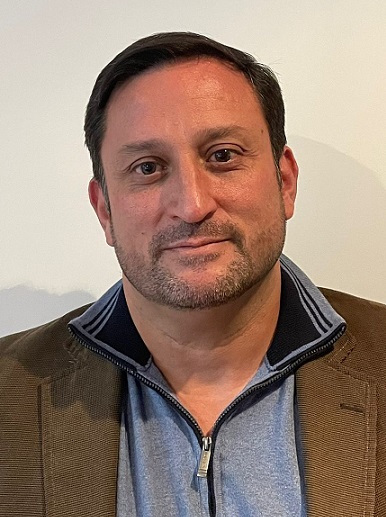Luis Eduardo Vanegas, CSO, Netdata, explains that the Managed Detection and Response-as-a-Service (MDR) model may become an alternative for protecting information for companies.

Companies were preparing themselves for a decade of transition to a more digitized and borderless environment. That decade lasted just a few months. The COVID-19 pandemic has accelerated all the processes and left many security gaps that were taken by cybercriminals.
Due to its peculiar business environment, where medium-sized companies prevail and resources are measured to the millimeter, Latin America has become ideal for developing a cloud-based, service-focused security model.
Companies in this region have taken the necessary measures to reduce risks and have sought allies on security who understand their dynamics. And there arises the business opportunity for Netdata Networks, an emerging company that has accelerated growth based on successful specialized cybersecurity solutions.
For Netdata Networks, its organic growth is due to the specialization of its state-of-the-art cybersecurity services such as MDR (Managed Detection and Response), SASE (Secure Access-Security Edge), Cloud Security, DLP (Data Loss Prevention) and SOAR (Security Orchestration Automation and Response).
Luis Eduardo Vanegas, CSO of Netdata Networks, said: “Netdata Networks is a company that started in Venezuela from a group of engineers focused on service provision and cybersecurity issues. It arose from the need to understand the market more. There was a boom to obtain technological cybersecurity solutions, mainly focused on perimeter security but only a few organizations exploited them at full potential.
“Buying an oversized solution happens a lot with technology: People buy an application with many features and only exploit 10% or 20% of it. Netdata Networks analyzed this situation and together with Palo Alto Networks, the main manufacturer we work with, we have developed a strategy that has spread throughout Latin America to solve this need.”
It is worth mentioning that apart from Palo Alto, Netdata has certifications in solutions such as Amazon Web Services, Docker, Kubernetes, VMWare NSX, ITIL, ITSL and NIST.
Currently, Netdata Networks has headquarters in Bogotá, Colombia, and has operations in the US, Chile, Argentina and Venezuela. But the business vision has allowed this company to expand its operations outside the region and it now has clients in countries such as Nigeria and the United Arab Emirates.
Proactive response to security
The company has focused on detecting, responding and managing cyberattacks. In addition, in 2021 it went from 200 to 5,500 protected assets and exported specialized services to the US and Chile for more than US$2 million.
José Cabello Ferrer, Executive Director, Netdata, said: “This year we are working on expanding our value proposition internationally, increasing operations in Chile and the US. For 2025, we plan to establish ourselves in Mexico and Argentina.”
Additionally, this growth is being improved by the recent launch of MDR Sentria. This robust solution integrates advanced technology with the ability to reduce the detection time to 30 minutes compared to the market that does it in six months and if an attack becomes effective, the solution can contain it in four hours while others do so in 21 days.
MDR Sentria
“Even though companies invest in cybersecurity, these investments often remain as small silos of information that are isolated from each other and two things happen: one is the human factor that is complicated to manage and requires strategies specific to do so. The second factor is that companies acquire many security solutions and each one of them generates information logs and there is no one to interpret this information,” said Vanegas.
“Attacks are increasingly complex. So, it is possible to have some security vectors that generate information which must correlate with other security vectors that produce new information. By interrelating all this, the organization can understand that an attack will happen.
“However, not all companies can timely detect these attacks because of several factors. For example, it is not their primary business so they do not invest in cybersecurity; secondly, they do not have the personnel trained to correlate information and detect attacks, or they cannot spend all their time at the working table and therefore cannot respond to an attack on time.
“What we are looking for in Netdata with a solution like Sentria is that we can extract the information, correlate it, understand it and we are constantly monitoring it 24/7. We deliver a rapid response model to timely isolate a cybersecurity attack.”
According to Vanegas, this solution focuses on monitoring, detecting and giving immediate response to the threats that companies face today.
“This new solution integrates advanced technology that has the ability to detect threats preventively and if an attack becomes a reality, it has enough tools to make it visible and to contain it in a record time of 30 minutes,” he said.
“With this great advantage of anticipation and the support of a highly specialized and certified human team, MDR Sentria also has the solvency to tactically contain this type of attack in a maximum time of four hours, offering the possibility of re-establishing the service to the organization attacked almost immediately and then regaining control with specialized containment and blockade measures.
“This way, we spend from weeks to hours in the process of detecting cyberattacks, reducing costs and risks while maintaining the operability of companies.”


